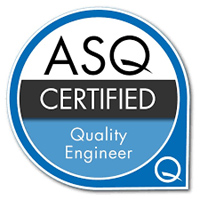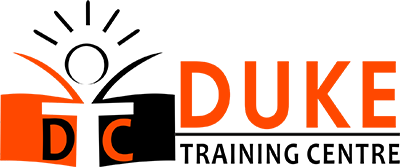ASQ-CQE Certified Quality Engineer Course Overview
A thorough training program, the ASQ-Certified Quality Engineer (CQE-ASQ) course is intended to give students the information and abilities necessary for a career in quality engineering. It addresses a number of topics related to quality management and enhancement, such as the use of quantitative techniques for quality analysis, the creation and administration of quality systems, and fundamental quality philosophies. The course is divided into seven modules, each of which focuses on a crucial aspect of quality engineering, including risk management, process control, system design, management and leadership, and system architecture. Participants will be ready to take the industry-recognized ASQ Quality Engineer Certification exam by completing certified quality engineer training. Obtaining this certification shows a person’s dedication to professional excellence and ongoing improvement as well as validates their experience in the field of quality engineering. Professionals looking to advance their credentials and successfully support the quality management success of their organizations will find this course to be beneficial.
Course Prerequisites
The following minimal prerequisites must be met in order to successfully complete the ASQ-Certified Quality Engineer (CQE-ASQ) course training:
- A fundamental comprehension of quality concepts and techniques.
- Knowledge of quality control guidelines and standards, such as ISO 9001.
- Knowledge of the ASQ Code of Ethics and a dedication to ethical behavior.
- A basic understanding of leadership concepts and the function of a leader in an organization that prioritizes quality.
- Essential communication abilities for working with suppliers, customers, and teammates in an efficient manner.
- An awareness of supplier and customer relationships within the framework of quality control.
- The capacity to understand and analyze technical documentation, including specifications and drawings.
- Fundamental understanding of data analysis and statistical principles.
- A readiness to use methods for quality improvement and participate in ongoing learning.
Although it is not a requirement for this course, it can be very helpful to have work experience in a quality-related field. Both novices and seasoned professionals will benefit from the training’s comprehensive knowledge base and skill enhancement for quality engineering.
Target Audience for ASQ-Certified Quality Engineers (CQE-ASQ)
Professionals who complete the ASQ-Certified Quality Engineer course will have a deep understanding of quality systems and advanced quality management abilities.
- Quality Engineers
- Quality Managers and Supervisors
- Quality Auditors
- Process Engineers
- Manufacturing/Production Engineers
- Quality Assurance Professionals
- Product Development Engineers
- Reliability Engineers
- Operations Managers
- Supply Chain Managers
- Risk Managers
- Experts in Continuous Improvement
- Six Sigma Black and Green Belts
- People getting ready for the ASQ CQE certification test
Learning Objectives – What you will Learn in this ASQ-Certified Quality Engineers (CQE-ASQ)?
Participants in the ASQ-CQE course gain a thorough understanding of the quality engineering concepts, instruments, and procedures necessary for both organizational and professional development.
Learning Objectives and Outcomes
- Learn about the creation of Quality Management Systems (QMS) and fundamental quality philosophies.
- Recognize the ASQ Code of Ethics and use moral standards in your professional interactions.
- Gaining leadership experience will help you lead and coordinate quality initiatives inside a company.
- Improve your communication abilities to break down barriers to quality improvement and to improve relationships with suppliers and customers.
- Find out about the components of a quality system, such as standards, audits, documentation, and the cost of quality (or quality impact).
- Develop the skills necessary to use tools like reliability analysis and design verification to create processes and products that take quality into account.
- To guarantee product quality, use metrology, process control techniques, and material control strategies.
- Make effective use of quality control tools and continuous improvement techniques, as well as corrective and preventive measures.
- Apply statistical techniques to data analysis to enhance decision-making and process efficiency (Statistical Process Control and Process Capability).
- Using systematic approaches for risk assessment, supervision, and control, identify and manage risks.

Testimonials
Duke Training Centre Unique Offerings
Online Instructor Led
With the convenience of your home or workplace, you can learn from our knowledgeable trainers online.
Classroom Training
In-person instruction in a physical classroom with maximum interaction at our five-star training facilities.
Schedule Dates
01 November 2024
01 November 2024
01 November 2024
01 November 2024



 Duration
Duration Language
Language Batch Options
Batch Options Upcoming Batch
Upcoming Batch






